Funding plan will hit poor pupils hardest - campaigners
- Published
- comments
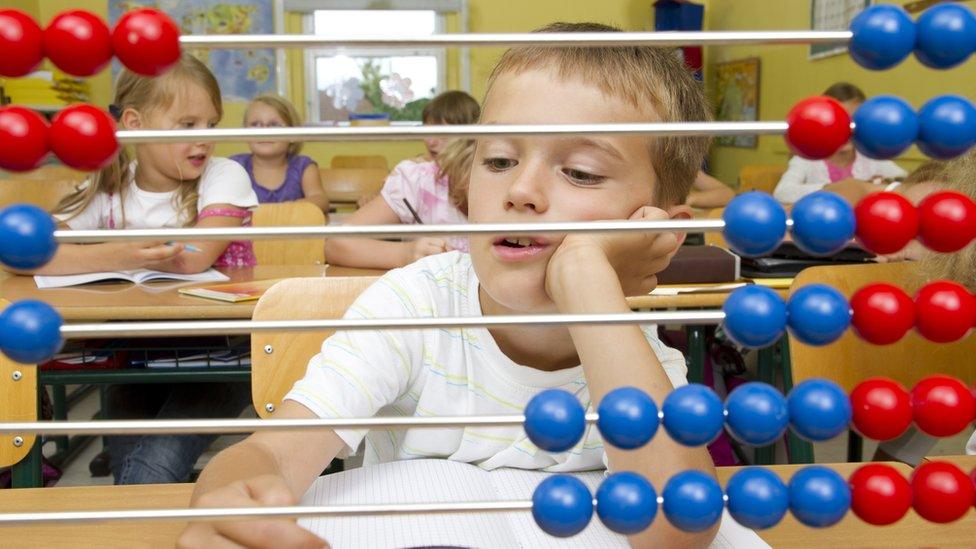
Rethink funding reform to avoid harming poorest pupils, ministers urged
Schools in England with the highest numbers of disadvantaged children will be hit hardest by government plans to change funding, say campaigners.
Schools where over 40% of pupils are eligible for free meals will lose most, say National Union of Teachers and Child Poverty Action Group researchers.
Ministers should rethink the national funding formula, which is due to begin in 2018-19, they say.
The government says the proposals will end a "postcode lottery" in funding.
The plans, announced late last year, will change the way that per pupil funding for schools is allocated and will mean a cash boost for more than half of schools, according to the government.
The aim is to stop inequalities that see schools in different parts of England, with similar intakes, receive different levels of per-pupil budget, say ministers.
But the overall budget will not increase, and education unions have already complained the proposals mean most schools will lose out, against a background of flat-lining budgets not keeping pace with costs.
Calculations,, external published in January by an alliance of six unions representing school staff, suggested that 98% of schools faced "a real terms funding cut for every pupil".
The six unions - the National Union of Teachers, the Association of Teachers and Lecturers, the National Association of Head Teachers, Unison, Unite and the GMB, said this would mean an average annual loss of £339 for every primary pupil and £477 for every secondary pupil.
The new analysis compares the predicted funding changes for schools generally with those for 997 schools with more than 40% of pupils on free school meals.
The figures suggest that funding for these schools would fall:
at primary level by £473 per pupil in real terms - £140 more than the average
at secondary level by £803 per pupil in real terms - £326 more than the average

Schools say they are already having to cut provision to balance the books
'Privileged few'
Child Poverty Action Group chief executive Alison Garnham called the figures "shocking".
"If the country - and our education system - is to work for everyone, not just the privileged few, ministers must reconsider the school funding formula," she said.
"Poverty at home is the strongest statistical predictor of how well a child will do at school, [but] schools and teachers can help to weaken that link if they have sufficient resources."
Ms Garnham said funding cuts in the poorest areas would set children up to fail.
"In the context of the prime minister's social justice agenda, that outcome looks perverse," she added.
NUT general secretary Kevin Courtney said it was disturbing that children in most need were in the worst affected schools.
By failing to fund the poorest children's schools properly, the government would be "seriously threatening their life chances", he said.
"Justine Greening must listen to the many voices that are saying her funding proposals are unfair in the extreme and in need of a complete rethink," said Mr Courtney.
But a Department for Education spokeswoman called the analysis "fundamentally misleading".
"Our proposed new funding formula recognises educational disadvantage in its widest sense, including pupils who do not necessarily benefit from the pupil premium but whose families may be only just about managing," she said.
"It also increases the total funding directed specifically to deprived pupils to £3bn.
"The union's figures ignore the fact that school funding is driven by pupil numbers, and as pupil numbers rise, the amount of money schools receive will also increase."
- Published27 January 2017
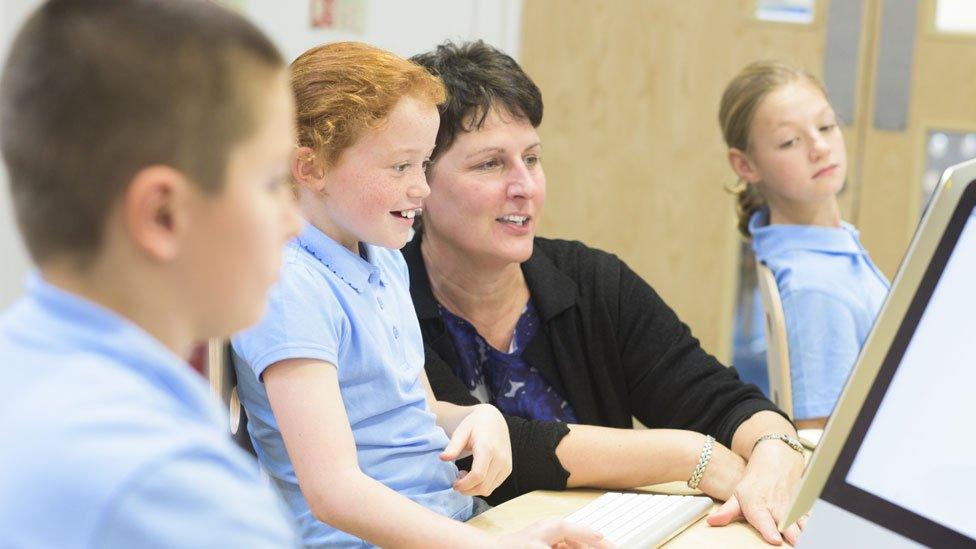
- Published16 January 2017
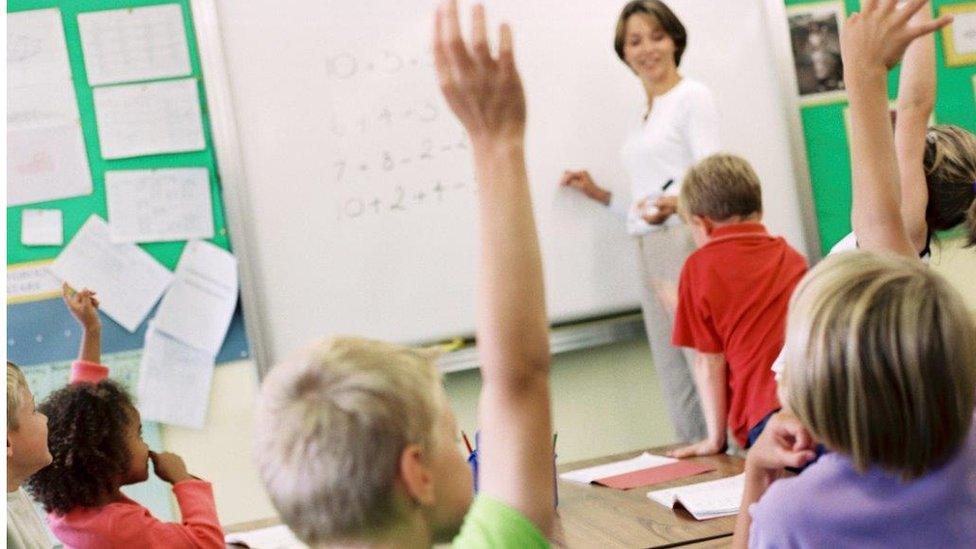
- Published10 January 2017
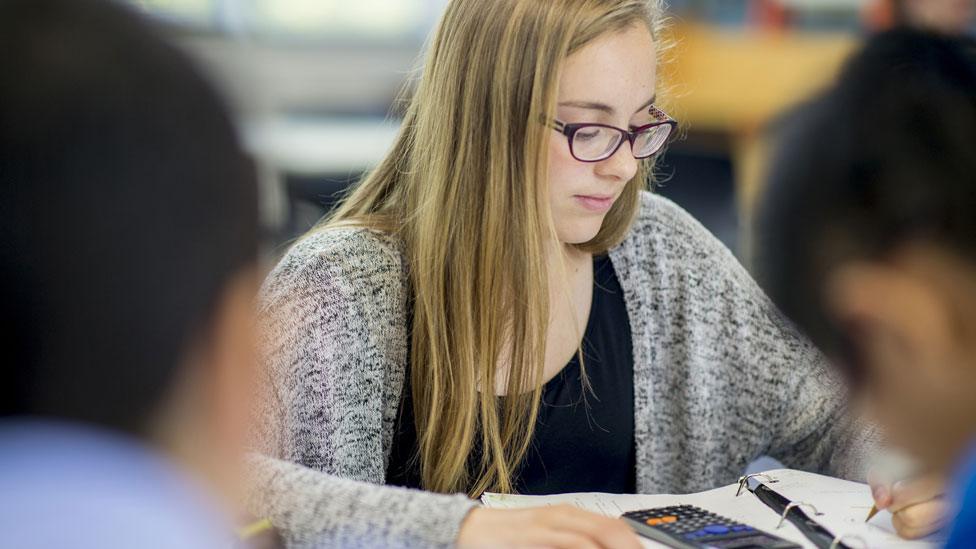
- Published14 December 2016
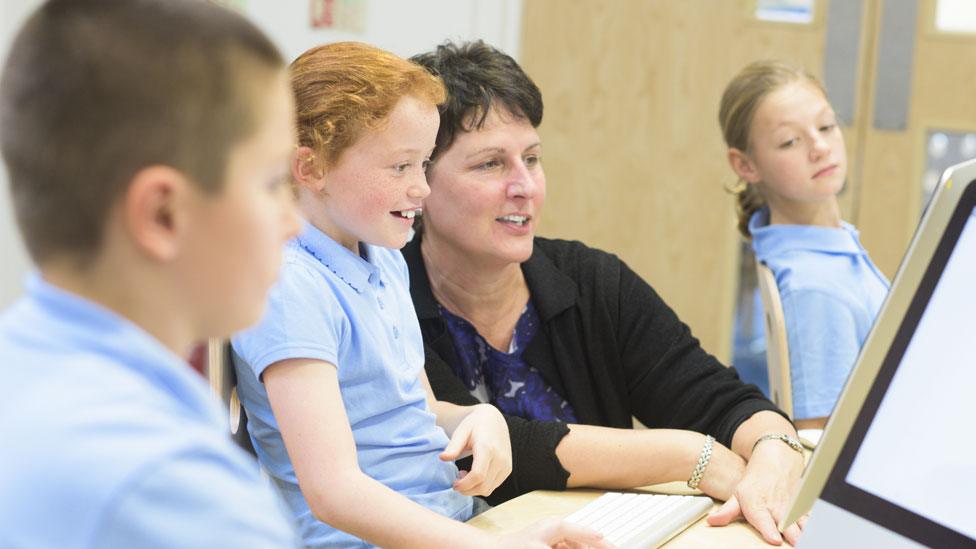
- Published11 November 2016